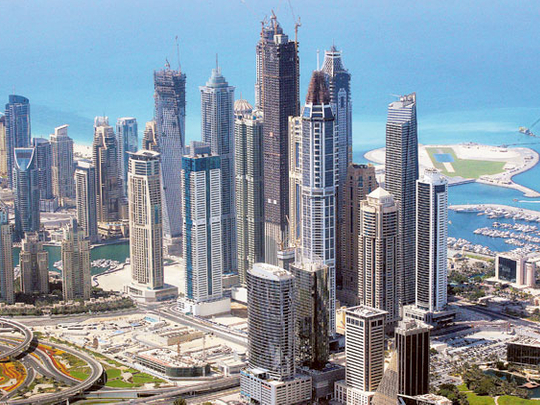
Dubai: The private sector has welcomed Dubai’s 2013 budget, saying it is a “perfect new year’s gift” by the government and sets the right tone for the economy in the new year.
The Dubai government on Monday announced a 7.8 per cent increase in its revenues to Dh32.62 billion for 2013 and pegged its spending at Dh34.12 billion. It lowers the budget deficit to below 0.5 per cent of the emirate’s gross domestic product (GDP).
His Highness Shaikh Mohammad Bin Rashid Al Maktoum, Vice-President and Prime Minister of the UAE and Ruler of Dubai, has approved Dubai’s budget for 2013, a government statement said.
Abdul Rahman Al Saleh, Director-General of the Department of Finance (DoF), attributed the government’s move to increase expenditures “in a bid to support the emirate’s economy by increasing public spending for the fiscal year 2013 by 6 per cent over the 2012 budget, without sacrificing the strategic objectives of the government of reducing the deficit and achieving a balance in the general budget.”
The government has indicated that it is committed to not using oil revenues to fund infrastructure projects.
Rise in fees
Government fees, representing 62 per cent of total government revenues, will be increased by 9.8 per cent compared to 2012.
“The rise in fees revenue is due to real economic growth and reflects the expected growth rates in the emirate. It also reflects the development and diversity of government services which allows the implemented policy of not raising any government fees in the emirate, adopted post the global economic crisis,” the statement said.
Tax revenues which represent customs and foreign bank taxes will increase 15 per cent in 2013 compared to last year and make up 23 per cent of total government income.
“Net oil revenues witnessed an increase of 11.8 per cent in the fiscal year 2013 owing to higher oil prices,” it said. “Allocations to the budget from government investment returns were reduced to allow for increased reinvestment in the emirate’s economic growth.”
Government expenditure, including salaries and wages, has been set at 39 per cent, affirming the government’s support of human resources and the creation of 1,600 job opportunities for Emiratis, the statement said.
Better services
General and administrative expenses represent 24 per cent of the budget, “reflecting the government’s commitment to further developing its institutions and its support to the provision of better government services to citizens and residents”.
Subsidies and grants represent 11 per cent of total government expenditure and show a 67 per cent increase over 2012. These include housing subsidies, sports, non-profit organisations and charitable organisations.
About 16 per cent of government spending is allocated for completion of infrastructure projects. About 6 per cent has been earmarked for debt servicing.
About 26 per cent of government spending has been allocated to social development — health care, education, housing and community development. Security, justice and safety sectors will receive 23 per cent of the budget.
The budget allocates 35 per cent for infrastructure, transportation and the economic sectors as Dubai continues to grow and its government continues to support new projects.
Public benefit fund
“The main focus of the 2013 Dubai budget has been on promoting youth entrepreneurship through the establishment of a public benefit fund to support small and medium-sized enterprises and families. Allocation of 26 per cent of the government spending on health care, education and community development has been directed towards it,” James Matthew, chairman of the Dubai Chapter of Institute of Chartered Accountants of India, told Gulf News.
“Despite the increased government spending of Dh34 billion, the budget deficit has been brought down to 0.5 per cent of GDP which is well below the international guideline of 3 per cent of GDP.”
Arif Abdul Rahman Al Ahli, executive director — budgeting and planning at the DoF, said, while preparing the fiscal year 2013 budget, the Government of Dubai has adhered to the fiscal policy rules by using recurring revenues to finance recurring expenses and achieving an operational surplus estimated at Dh204 million, thereby contributing to the financial sustainability of the emirate.












